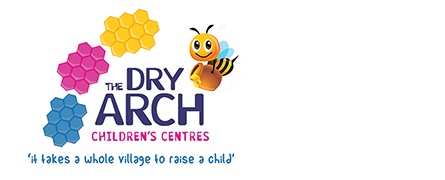Useful Information
It's easy to get into the habit of noticing only what's going wrong in our family, the
things that annoy us, the times children try our patience. The children do it too
– telling us when their brother or sister or friend has done something they feel
upset about, but not when someone has been kind to them or they've been having
fun. It can be hard for all of us to remember to spot the everyday kind and helpful
things, rather than taking them for granted.
Here's a way of making this easier. Have a simple, colourful kindness chart.
Whenever anyone spots someone else doing something kind or helpful, the
person being kind is invited to add to the chart. Adults can nominate each other as
well as children; children can nominate each other and grown-ups too. Visitors can
be invited to join in. When you all get good at noticing for each other, you can start
nominating yourselves as well.
Kindness Charts is something we discuss in our "Parenting Puzzle" Nurturing programme, along with other topics and strategies that can be used to regulate the emotional temperature in your home. For more information, call us on 028 7774 2904 and we'll be happy to help!

Children's Mental Health Week runs from 5th - 11th February 2024 and this year's theme is "My Voice Matters".
My Voice Matters is about empowering children and young people by providing them with the tools they need to express themselves.
When we feel empowered, this can have a positive impact on our wellbeing. Children and young people who feel that their voices are heard and can make a difference have a greater sense of community and self-esteem. This year, we want children of all ages, backgrounds and abilities to be empowered to work together to create a positive change for their mental health and wellbeing.
During Children’s Mental Health Week we want all children and young people, whoever they are, and wherever they are in the world, to be able to say – and believe - “My Voice Matters”.
This sheet allows you to create a discussion with your child about things that they are proud of. Younger children can draw in the space or you can write their answers, and older children / young people can use the sheet with headings to think about different scenarios.

Babies & Children don't come with manuals - parents and carers are doing the best that they can with the information they have. And this information can come from many sources - passed down from generation to generation, tips from friends, colleagues, medical professionals - the list is endless! Each parent has their own style and this questionnaire is designed to help you identify yours.
Authoritarian:
- Highly demanding: sometimes expects behaviour that isn’t age appropriate
- Strict boundaries & limits, usually enforced using “punishments”
- Parent centred approach; Parent knows “best”.
- Uses less affection and lower levels of responsivity
- Demands a lot of respect for adults, but little respect for child’s control
- “Do as I say, not as I do”, “It never did you any harm”, “You’re the adult, they’re the child”
Permissive:
- Parents / carers demand little of the child and have low expectations of behaviour
- Child is often capable of more positive behaviour, but this isn’t always encouraged by parents. Unwanted behaviour is often explained away
- Few or no boundaries or limits, and boundaries that are in place are not enforced
- Child is totally in control
- Highly affectionate parents who are highly responsive to child’s needs but sometimes misinterpret them.
Authoritative:
- Expectations of behaviour are reasonable and age appropriate
- Positive behaviour is praised in a specific way
- Fair boundaries and limits are placed on child’s behaviour, but are open to discussion and compromise
- Child and parent share control where appropriate
- Warm, nurturing parents who respond and react to child’s needs while teaching them how to express feelings appropriately
Styles of Parenting are discussed in our "Building Better Boundaries" programme - if you'd like to find out more, please contact us on 028 7774 2904 for more information!

How can you support your child’s mental health? Place2Be asked children and young people what they want – and need – from their families.









